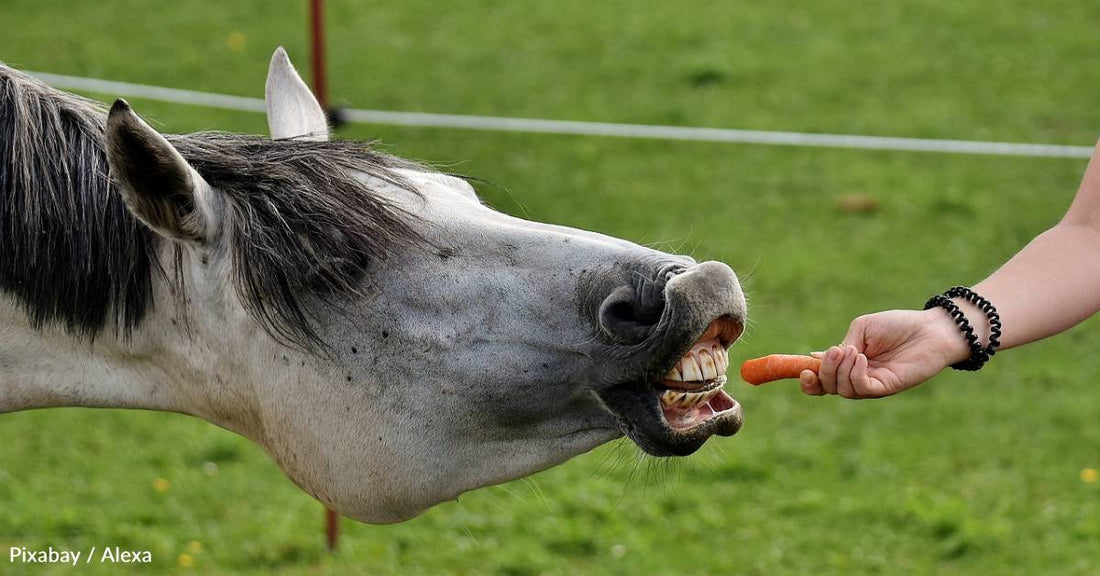Based On a New Study Involving Treats, Horses May Be a Lot Smarter Than We Think
Michelle Milliken
Most animals don’t mind a treat, but horses may be able to use exceptional smarts to get one.
A study recently published in the journal Applied Animal Behaviour Science investigated whether horses were able to learn how to reach goals through a treat system. The researchers say horses aren’t currently thought to have such advanced cognitive abilities. According to the findings, this isn’t an accurate assessment, though, as they were able to learn pretty quickly how to make decisions to get treats, possibly using a cost-benefit thought process.

Dr. Carrie Ijichi, lead researcher from Nottingham Trent University, says, “Horses are not natural geniuses, they are thought of as mediocre, but this study shows they’re not average and are in fact more cognitively advanced than we give them credit for.
“We now think that horses may be able to use a form of learning called ‘model-based learning’ which was thought to be too complex for them. This will now help us to understand their behaviour and capabilities much better.”

To conduct their study, the team had 20 horses take part in three different treat-obtaining experiments. In the first, horses were able to get a treat when they bumped their noses against a card. After that, the task got more difficult. They wouldn’t get a treat if they nudged the card when a light was on, but they would when it was off. Their success at this wasn’t necessarily that great, but they still got plenty of rewards when they got it right.
However, in the third experiment, there was a negative possibility introduced. If they got it wrong, they had to undergo a 10-second timeout in which they couldn’t play or get a treat. That’s when they became much better at it.
The researchers say this suggests horses have better cognitive abilities than we think, since they switched things up and became more attentive when their ability to get treats was taken away. This is a sign the animals have goal-directed, future thinking, which allows them to make decisions based on what they want and what they need to do to get it.

Researcher Louise Evans, study co-author from Nottingham Trent University’s School of Animal, Rural and Environmental Sciences, explains, “We were expecting horses’ performance to improve when we introduced the time-out, but were surprised by how immediate and significant the improvement was.
“Animals usually need several repetitions of a task to gradually acquire new knowledge, whereas our horses immediately improved when we introduced a cost for errors. This suggests that the horses knew all along what the rules of the game were.”
While it helps us understand their intelligence better, research like this also shines more light on how horses learn, which may improve training techniques and horse welfare.

